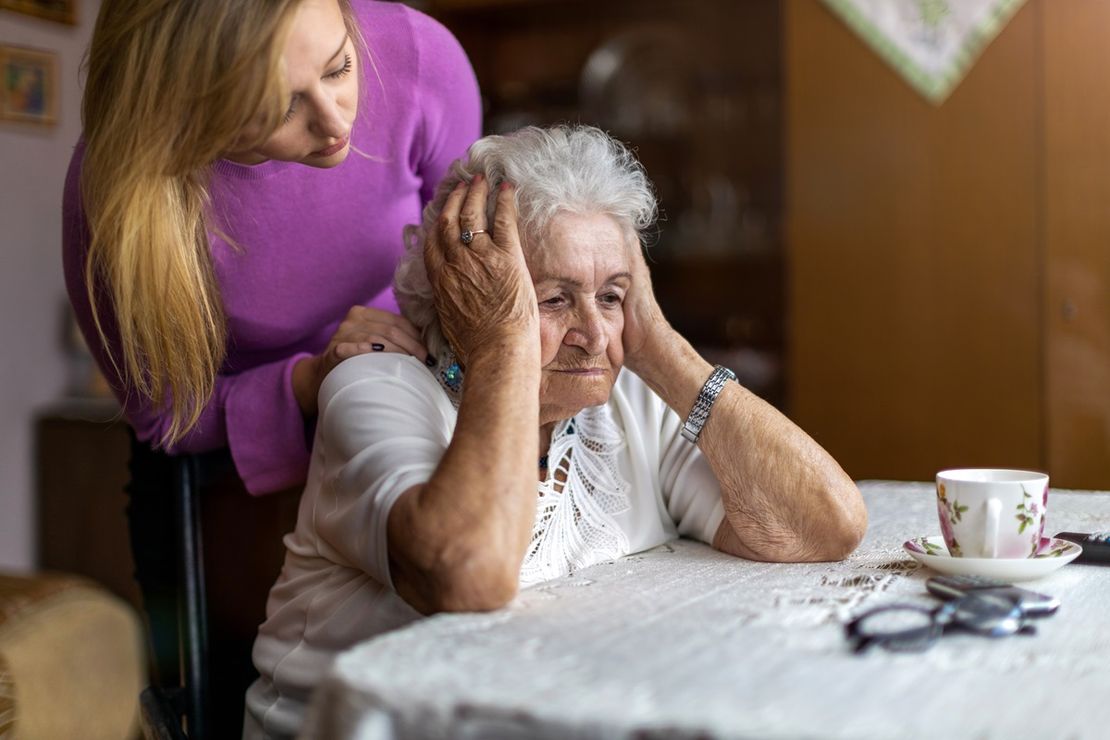
In the delicate balance of caring for our aging loved ones, understanding the signs that indicate when assisted living is needed is essential in ensuring that we choose the best course of action for the well-being of our family members. In particular, a big question for many families is whether you should look at a residential facility or arrange care at home.
When Is Assisted Living Needed?
First, we should understand the different types of care options available. Assisted living, home health care, and home care are distinct forms of support catering to various needs.
- Assisted living typically refers to residential facilities that offer a combination of housing, personal care services, and healthcare support for seniors or individuals with limitations in daily activities.
- Home health care involves skilled medical services provided in a person’s home under the guidance of healthcare professionals (like a nurse or therapist) addressing specific medical needs like nursing care, physical therapy, or rehabilitation.
- Home care encompasses a broader range of non-medical services provided at home. These can be personalized to suit the specific needs of the individual being cared for. For example, Nova Home Care’s home care services can include assistance with daily activities, companionship, and light housekeeping.
If you’re wondering when to put a parent in assisted living, it’s important to be aware that it may not be necessary to send your loved one to a facility, and that there are comprehensive care options, such as those provided by a care agency like Nova Home Care, that enable seniors to live safely and comfortably in their own homes.
Signs That Your Elderly Loved One Needs Care
While assisted living is a communal option, home care takes place within the comfort of an individual’s residence, offering flexibility and tailored support to meet unique requirements. In-home care has many benefits for health and well-being, so we generally do not recommend assisted living when home care is still an option. To decide whether or not an aging loved one requires professional care and which option to go for, look out for the following signs:
1. Decline In Physical Health
One of the primary indicators that it may be time to consider assisted living or home care is a noticeable decline in physical health. If your loved one is struggling with activities of daily living, such as bathing, dressing, or preparing meals, it may signify the need for additional support. Chronic health conditions or recent illnesses can exacerbate these challenges, making it essential to assess the level of assistance required.
2. Cognitive Decline
Changes in cognitive function, including forgetfulness, confusion, or disorientation, are common in aging individuals. However, when these symptoms escalate to the point of impacting daily life and safety, it may be time to consider assisted living. Conditions like Alzheimer’s or dementia often necessitate specialized care—whether in the form of an established facility or, as is the case with Nova Home Care’s aides, a professional caregiver who can offer the structured environment necessary for optimal well-being.
3. Social Isolation
Seniors who become increasingly isolated may experience declines in mental and emotional well-being. If your loved one is withdrawing from social activities, losing interest in hobbies, or experiencing loneliness, it’s crucial to consider care services. Assisted living environments provide opportunities for social interaction and structured recreational activities. Alternatively, in-home caregivers from Nova Home Care are selected for their compassion and trained to provide companionship services. They promote a higher quality of life for seniors by engaging in hobbies, reading, walks, and conversation in the home environment, often becoming close friends with clients.
4. Safety Concerns
A decline in physical health and cognitive function can pose safety risks for seniors living independently. Falls, accidents, and the inability to respond effectively to emergencies become more likely. Assisted living facilities are equipped with safety measures and staff to address these concerns. On the other hand, in-home caregivers are trained to create a secure environment, including medication timetables, hygiene, and emergency plans for seniors staying in their own homes.
5. Strain On Family Caregivers
The responsibilities of caring for an aging family member can be overwhelming, both physically and emotionally. If family caregivers find themselves struggling to meet the increasing needs of their loved ones, it might be an appropriate time to seek professional assistance so that they can focus on quality time with each other instead of caregiving.
Nova Home Care: Your Trusted Partner In Care Solutions
At Nova Home Care, we understand the challenges families face when considering assisted living for their loved ones. Our professional caregivers are trained to provide the highest standard of care, ensuring a safe and nurturing environment for seniors. We recognize that the decision to seek assistance for a loved one is deeply personal, and our team is here to support you every step of the way.
If you recognize any of the signs mentioned and believe that your loved one could benefit from home care services, contact Nova Home Care today. Our team will assess your unique situation and guide you through the most suitable solutions. Don’t wait until the challenges become overwhelming—act now to ensure your cherished family member’s safety, health, and happiness.
Call Nova Home Care at 317.537.2490, use our referral form, or contact us online to learn more about our services and how we can assist you and your family during this critical transition. Your loved one deserves the best, and Nova Home Care is here to make a positive difference in their life.


